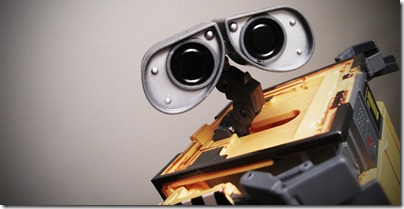In an earlier post I recommended that you act As-If you were someone else.
Forget about Positive Thinking it is time for Positive Action
The idea in the As-If Principle: Behaving as-if will lead to thoughts, feelings, behaviors and judgments that are aligned with how you are behaving.
For example Smiling, forcing your face to smile will make you happier. Behaving As-If you are happy, smiling informing your body you are happy, will change your feeling to be happy.
Team Building scenario
Having a team in a new environment or working in a familiar environment in a new way, involved in team building activities, simulations and discussions. Will cause the team to behave As-If they are a team and the positive sides of team work will emerge. Evidenced through processing of having shared goals, systems-of-communication, people laughing, ideas being listened too and considered, etc…
BUT this is a systems-drive-behavior element. Meaning the system put in place, Team Building activities and discussion –> led to the behaviors you are seeing.
The people on the team are acting AS-IF they are a team.
Therefore the behaviors and feelings that are evidenced are those of team-work.
This is why team building works when the team is involved in these team building scenarios BUT the same lessons are lost when they are back at their desks or work place.
The systems are different, the people acting As-If are different.
Can the As-If Principle be applied outside the team building room?
Of course it can.
As-If For Teams
- Look for areas and work that allow the team to capture small-wins. Determine what and how that small win happened and re-create the environment and scenario and steps that led to success.
- The team needs to determine areas where they do find agreement this usually starts with goals and then ensure that all team members know their roles and the procedures to get the work done. Defining accountability and authority of each team member will cause them to act As-If they have that knowledge accountability and authority.
This is not a perfect idea and I think it is better than positive thinking and forced positivism on teams.
Some Objections
- People can only pretend to be As-If until they cannot do the work. Yes, and I have stated before if the complexity of the work is outside the persons current-actual-capacity then no amount of training or acting will magically fix this.
- I don’t see how this and positive thinking are different? Positive thinking is thinking thoughts will change your behavior, this states that doing things making actual changes to your behavior will change your thoughts. In the suggestion I gave on time-management, instead of thinking about how you manage your inbox and how to respond to customer requests, find someone who is really great at those things, learn some of their methods and actually do that stuff. Behave as-if you are that person, this will lead to small-wins and changes in your thinking about your work.
- You can’t learn from other peoples’ success. OK that is because other people are not you and what worked for them will not work for you. Example the CEO drinks a bottle of Scotch every day, therefore if I drink a bottle of scotch I will be a CEO. Agreed. And there are more examples. What William James was referring to was the idea that behavior precedes emotions and not the other way around. If you want to be a successful Public Speaker, observe and ask what other public speakers do to prepare, and try to act As-If you are a successful public speaker. Some of what-works will make you a better public speaker and you will do more of that.
What do you think?
With the video and team building example, can you determine how the As-If principle affects teams? In what ways could you work with teams for them to behave as-if they were successful? What other objections do you have?


